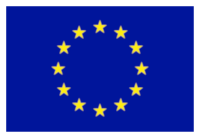Developing strategies and solutions to get the most out of energy-saving opportunities in commercial buildings; this is our goal in the SIT4Energy project. ITML leads the development, implementation and real-time validation of an intelligent recommendation service embedded in a smart mobile application aiming at providing personalized insights and recommendations for optimizing energy consumption patterns.
In the past decade, energy efficiency has been a trending phrase that can be found in electronic devices’ labels up to large building schematics. After the emergence of the industrial revolution, energy consumption rates increased exponentially and are still in a rapid increase. Therefore, an understanding of how we can be both energy efficient and productive had to be established. Energy efficiency simply is spending the least amount of energy to perform a certain task while reducing energy waste as much as possible.
From the year 2010 to 2018, energy demand has severely increased in its annual growth percentage, making the current annual growth rate for energy growth 3.5% [1], which came hand in hand with the 3.7% increase in global economy. In addition, energy efficiency is mostly demanded in commercial buildings, since they consume the most amount of energy worldwide accounting for 40% of the world’s energy consumption [2]. As a result, a large percentage like this should not be disregarded, reason being it comprises over a one-third of the overall world energy consumption and increasing, respectively.
In contrast, along with energy consumption comes its long-lasting effects on the climate and the earth’s ecosystem. Due to that, many global efforts have been established to decrease CO2 emissions while simultaneously increasing global productivity levels. Initiatives such as the Paris Agreement [3], the National Energy Efficiency Action plans (NEEAPs) [4], the G20 Energy Efficiency Leading Program (EELP) [5], etc. were established to collectively work towards the decrease of CO2 emissions while keeping the world’s production levels intact. Other initiatives focused solely on the technological and educational aspects of energy consumption in the form of smart IT ready-to-use services which helps users get informed of their consumption and how to regulate it.
Aligned with this mission, SIT4Energy was launched as a joint national project between academic and non-academic partners from Greece and Germany. The project aims at helping citizens regulate their energy utilization rates, educate them about how to achieve energy efficiency, and supporting them in adopting new energy saving habits. Basically, the project employs a smart energy management dashboard and an intelligent mobile application interconnected with a central recommendation engine and incorporated with users’ attention triggering, activity tracking, adaptive incentivization services, as well as user behavior changing models. SIT4Energy will have a substantial impact on research, society, environment, and the economy. The scientific impact will be achieved via designing and developing the smart IT tools and services, that will be tested in real-world pilots based on various use-case scenarios. Regarding the economic impact, SIT4Energy will be offering cost effective “ready-to-go-market” products/services to potential stakeholders and target audiences. Finally, the socio-environmental impact of SIT4Energy will be obtained through the offering of products/services and promoting energy efficient practices that change the end-user’s energy consumption behaviour to become environmentally friendly consumers. The socio-environmental effects will be measured through the implementation of a recommendation service tailored with SIT4Energy assets which helps end-users’ energy behavioural change and increase positive environmental practices and actions attitudes.
In SIT4Energy, ITML has developed an intelligent recommendation service embedded in a smart mobile application which focuses mainly on improving the energy consumption behaviors amongst end-users. In the app, users can monitor their consumption behaviors and aim to rectify them using the “tips and tricks” that the app provides. Currently, the tool is in a close piloting phase, being validated by academic end-users from Harokopio University of Athens (HUA). In the near future, we envision to release the public version of the app, specifically designed for raising energy consumption awareness amongst the young generation using creative incentivization and gamification methods.
Feel free to look at the SIT4Energy Application tutorial for more information!

This research, in the framework of the Project “SIT4Energy” – “Smart IT for Energy Efficiency and Integrated Demand Management”, is co‐financed by the European Regional Development Fund (ERDF) of the European Union and Greek national funds through the Operational Program “Competitiveness, Entrepreneurship and Innovation”, under the Greek-German Call for Proposals on Bilateral Research and Innovation Cooperation.
[1]https://www.iea.org/reports/global-energy-co2-status-report-2019
[2]https://repository.ihu.edu.gr/xmlui/bitstream/handle/11544/435/Konstantia%20Leonidaki_IHU_SciTech_Thesis_Leonidaki-K_609.pdf?sequence=1
[3]https://unfccc.int/process-and-meetings/the-paris-agreement/the-paris-agreement
[4]https://ec.europa.eu/energy/topics/energy-efficiency/targets-directive-and-rules/national-energy-efficiency-action-plans_en?redir=1#national-plans-for-the-eu-2030-target
[5]https://ec.europa.eu/energy/sites/ener/files/documents/G20%20Energy%20Efficiency%20Leading%20Programme.pdf

